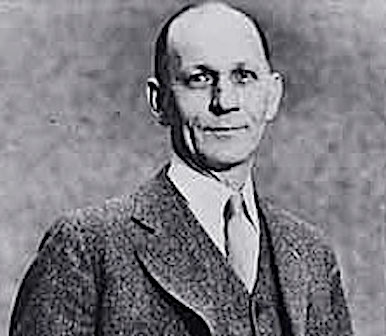Sport: Basketball
Born: July 15, 1875
Died: December 8, 1941
Town: Egg Harbor, New Jersey

Frank Morgenweck was born July 15, 1875 in Egg Harbor City, NJ. A fine all-around athlete, he came of age at the same time the new sport of basketball was evolving in the 1890s. Frank also had a head for business and a talent for organization. In 1898, he and his older brother, Billy, formed America’s first pro hoops circuit, the National Basketball League. They ran the Camden Electrics, with Billy as player-coach. The team played home games in a court at the Sixth Regiment Armory. Two other New Jersey teams were among the NBL’s first-year members: the Millville Glass Blowers and Trenton Nationals.
The Electrics boasted some of the game’s early standouts, including Charlie Bossert and Snake Deal. Deal, who also played pro baseball, was the first player to experiment with a jumpshot. The Electric won both halves of the 1902–03 NBL season, claiming Camden’s first professional sports championship. The league disbanded midway through the following season, with Camden atop the standings with a 10–4 record.
Billy Morgenweck was sued by investors when the NBL folded and moved away from basketball, but Frank remained in the game as a player, coach and promoter. He played through the 1915–16 season and coached until the late-1930s. He piloted three clubs to league championships between 1912 and 1930: the Kingston Colonials (twice, once as a player-coach), the Paterson Legionnaires and Rochester Centrals. In his later years, his players called him “Pop.”
During the teens and ’20s, basketball leagues came and went and star players often suited up for multiple teams in the same season. Frank survived by moving his club wherever the money and stability seemed to be. In 1928, he moved his team to the American Basketball League and made it to the finals, losing to the New York Celtics. His team won the 1930 ABL title as the Rochester Centrals. The following season, George Halas hired Frank to coach the Chicago Bruins and he led the club tp a second-place finish.
Frank earned the loyalty of his players by dealing with them fairly and by passing along his technical expertise. Benny Borgmann, Babe Artus and Rusty Saunders were among his protégés.
Frank coached his last game in 1938. He passed away in 1941, the day after the Japanese bombed Pearl Harbor.